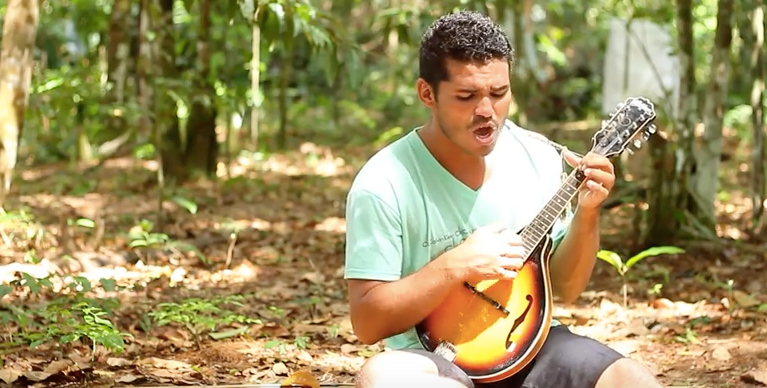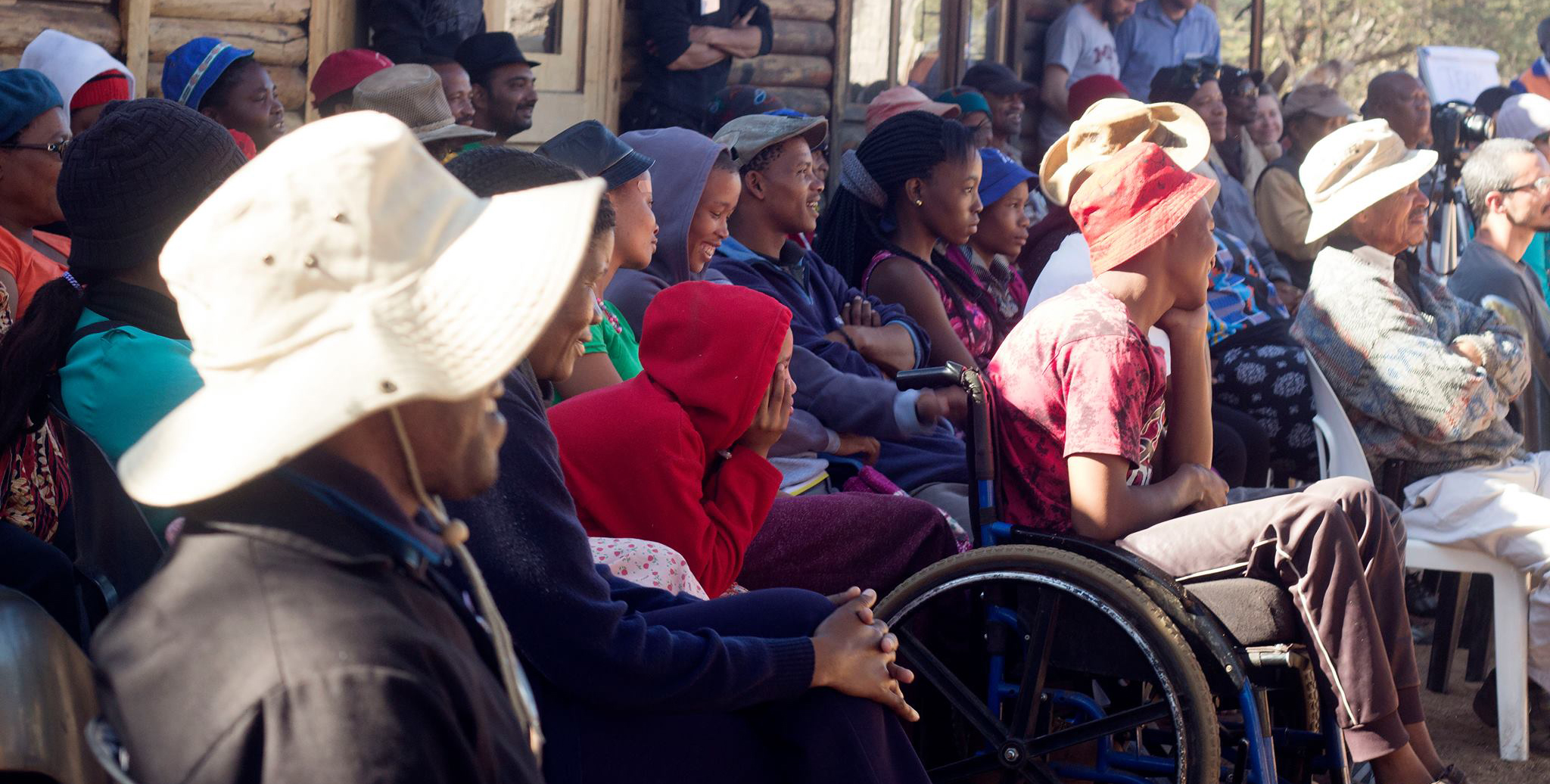Announcing the Projects and Businesses from IDDS Uganda 2019!
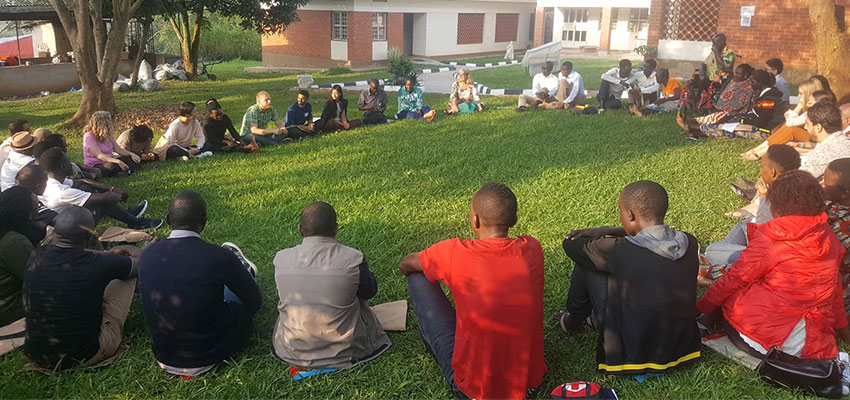
We are excited to announce the six projects that teams have been working hard during the International Devepment Design Summer (IDDS) Uganda 2019!
The summit
The International Development Design Summit (IDDS) Uganda 2019: Transforming Household Livelihoods took place from August 21 to September 7, 2019, with 28 participants and 18 organizers from 11 countries. Among the organizers and participants were MIT D-Lab Founding Director Amy Smith and two D-Lab students, Sandy Walter and Megan Ochalek. During this two-week summit, participants learn about design and entrepreneurship by co-creating a technology and developing business models with community members from Rhino Camp Refugee Settlement.
Ecowuzi
Transforming Livelihoods through Plarn (Plastic Yarn)
Continuous distribution of polyethylene bags has left Rhino Camp with a plastic waste problem that’s not only hazardous for the environment but for the people as well. To counter this issue, the team will use this plastic waste to create new products. Their prototype cuts plastic bags into strips of consistent-widthplarn (plastic yarn), which can then be used by the local women to make customized hand-woven products. Ecowuzi believes this machine will empower people with income generating opportunities while conserving the environment.
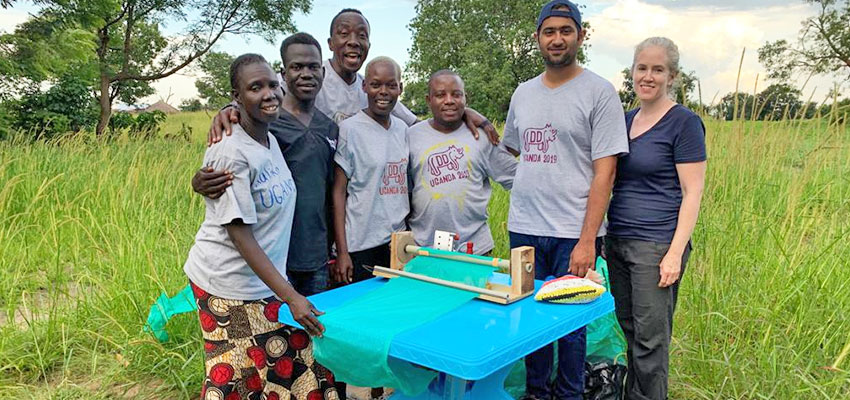
Ecowuzi team. Photo: Liz Hunt
Mama Makana
Ocea’s Salam
Current paste-making technologies are either too slow or too expensive to meet the needs groundnut and simsim paste makers in Rhino Camp and other refugee settlements. Mama Makana seeks to create an opportunity for paste makers to grow their businesses by accessing an affordable, more efficient paste-making machine that can increase productivity through both direct sales of paste as well as paste-making services. This project aims to support income generation, improve hygiene and finally, support entrepreneurial aspirations and create jobs.
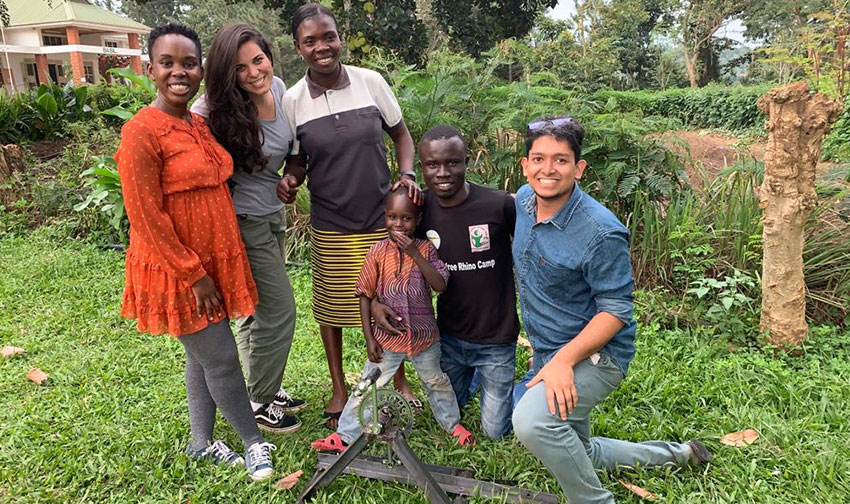
Mama Makana team. Photo: Liz Hunt
Saka
Waste to Fuel
Excessive fuel use and continuous scarcity of fuels is a problem in most rural and humanitarian settings. This shortage places a burden to the environment & livelihoods. Saka has designed a low-cost briquette-making machine to compress carbonized organic waste to produce fuel, with the ability to press multiple briquettes at once. The design will reduce reliance on firewood and charcoal for cooking and improve living conditions while reducing financial burdens and negative environmental impacts.
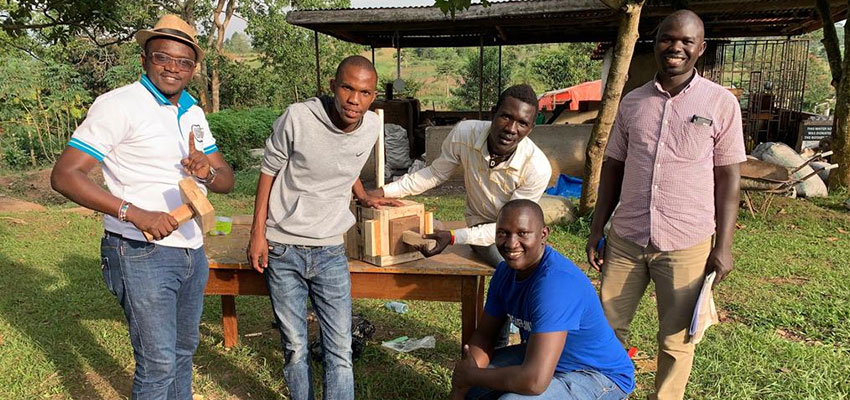
Saka team. Photo: Liz Hunt
Gelba A Simsim
Simsim Sweets for Sweet Hearts
When you visit Rhino Camp and other communities in the West Nile region, you will find simsim sweets being sold in the streets and markets. These simsim sweets are made by women with a simple, slow process. Gelba A Simsim is an affordable machine that helps these makers increase their simsim sweets productivity income through a faster process without burning their hands. Gelba A Simsim is designed to help simsim sweet makers build their resilience and improve their livelihoods.
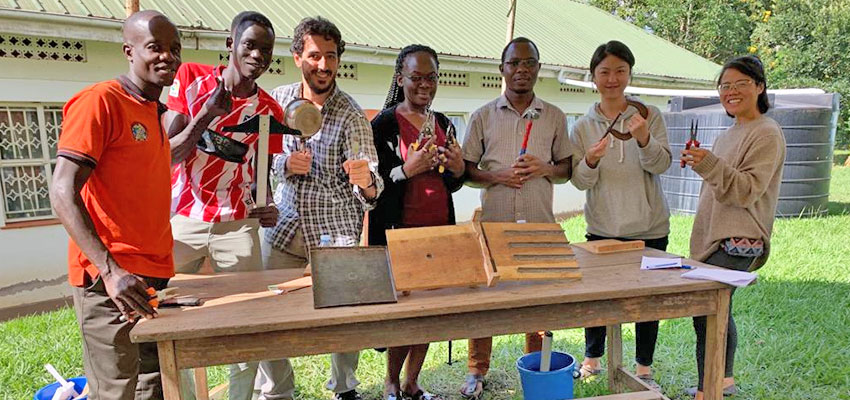
Gelba A Simsim team. Photo: Liz Hunt
Drika
Growing Mushrooms, Growing Communities
Mushrooms provide an opportunity for household income generation in a community that currently does not produce mushrooms for sale, and is only able to harvest wild mushrooms during a few months out of the year. This business will begin by purchasing colonized bags, creating a scalable watering system, appropriate for households, and harvesting mushrooms for sale at local markets. Drika aims to work with community entrepreneurs interested in starting with a couple dozen mushroom bags, with the goal of eventually scaling up to an established cooperative that can invest in larger production equipment. Drika’s watering system has been designed to be convenient, water conserving, clean, consistent, and cost-effective. The team’s motivation is to empower household businesses while providing variety and nutritious food to residents of Rhino Camp.
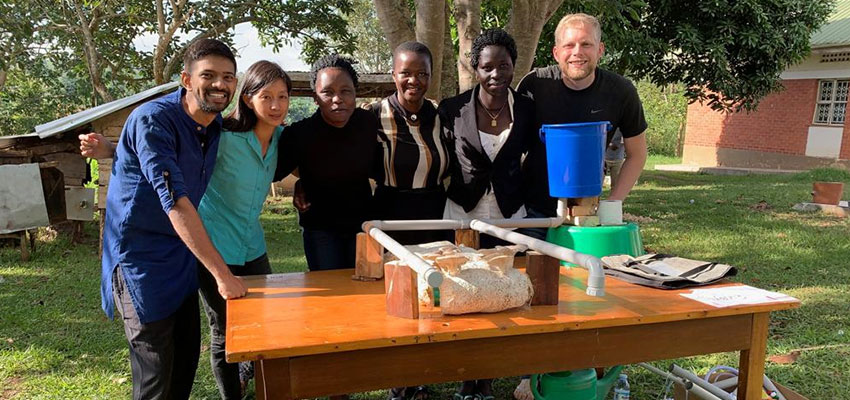
Drika team. Photo: Liz Hunt
Bizra Booster
Waste is Gold
Low agricultural productivity due to poor soils and poor waste management are some of the challenges in the Rhino Camp settlement. Bizra Booster is a local innovation, turning organic waste into organic fertilizer through vermiculture to enhance agricultural productivity. The team intends to scale up by working with groups of ten households to manage waste by producing compost and liquid fertilizer to use and sell in the market.
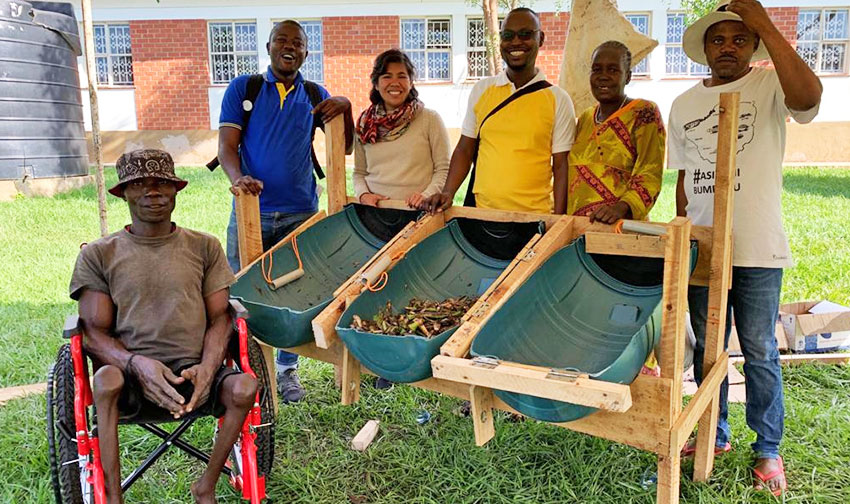
Bizra Booster team. Photo: Liz Hunt
The teams have just presented their work to get more feedback at the final showcase in Rhino Camp. Attendees were a diverse mix of stakeholders, including community members who have been working with the teams throughout the summit and practitioners from humanitarian NGOs working in the area (Note: Jal will provide a list of the organizations who attended).
Read here for post-summit updates about the continuity of the businesses launched by these six project teams, helping to create more livelihood opportunities in Rhino Camp!
Read here for an interview with Richard, a refugee participant in the summit.
Read here for a first person reflection from summit participant Faith Kathoka.
Please contact us if you’d like to join in on our efforts to support the refugee livelihood projects launched out of this year’s summit. We are currently seeking funding, in-kind donations, technical mentorship, publicity, and other forms of support – let us know your ideas!
------------------------------------
Jessica Huang is a doctoral candidate in public health at Harvard, and she has co-founded and co-taught two undergraduate classes at MIT D-Lab as well as led D-Lab's youth engagement in partnership with school teachers from around the world. Jessica has been involved in IDDS and the broader IDIN community since 2008, helping with summits in the US, Ghana, Brazil, India, Colombia, and Guatemala. Most recently, she helped to organize the 2019 summit in Uganda on refugee livelihoods and served as a representative at the UN Solutions Summit, where she helped to bring IDIN on as a new Acceleration Partner.
More Information
International Development Innovation Summits





